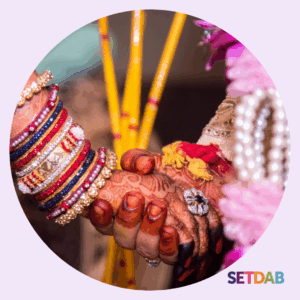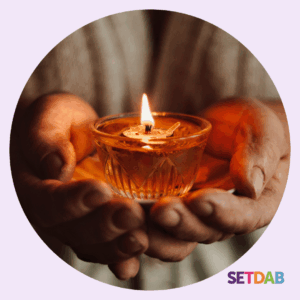Understanding Honour-Based Abuse in the context of Domestic Abuse – resources to help professional understanding
What is Honour-Based Abuse?
Honour-Based Abuse (HBA) is a form of domestic abuse that occurs when someone is punished for actions that are perceived to bring shame or dishonour to their family or community.
This abuse is often about control — forcing someone to behave in a way that fits with certain cultural or religious expectations. It can affect people of any age, gender, or background.
Why does it happen?
In some families or communities, the idea of “honour” is placed above a person’s safety, rights, and wellbeing. If someone is seen to go against these expectations — such as choosing their own partner, dressing differently, or seeking independence — they may be seen as bringing “shame” on the family.
This belief can be used to justify:
- emotional or physical abuse
- isolation or disownment
- forced marriage
- threats or violence
It is important to recognise that honour-based abuse can involve multiple perpetrators and multiple victims, often extending beyond the immediate household to include extended family and members of the wider community.
View the Karma Nirvana’s HBA Identification Tool – Karma Nirvana a vital new resource from Karma Nirvana designed to support frontline professionals in recognising and responding to cases of Honour-Based Abuse (HBA).
Forced marriage
There is a clear distinction between a forced marriage and an arranged marriage. In arranged marriages, the families of both spouses take a leading role in arranging the marriage but the choice whether or not to accept the arrangement remains with the prospective spouses.
In forced marriage, one or both spouses do not (or, in the case of some adults with disabilities, cannot) consent to the marriage and duress is involved. “Duress” can include physical, psychological, sexual, financial and emotional pressure.
Parents who force their children to marry often justify their behaviour as protecting their children, building stronger families and preserving cultural or religious traditions. They often do not see anything wrong in their actions. Forced marriage cannot be justified on religious grounds; every major faith condemns it and freely given consent to a marriage is a prerequisite of all religions.
View the Forced Marriage resource pack designed to highlight examples of best practice and to help ensure that effective support is available to victims of forced marriage.
Female Genital Mutilation (FGM)
FGM comprises all procedures that involve partial or total removal of the external female genitalia, or other injury to the female genital organs for non-medical reasons.
It’s important to highlight the long-lasting impact of Female Genital Mutilation (FGM) and recognise it as a form of sexual abuse and a criminal offence.
Why FGM is Sexual Abuse:
Non-consensual: FGM is often performed on minors who cannot give informed consent, making it a clear act of abuse.
Physical and psychological harm: The procedure can cause severe pain, infections, complications in childbirth, and long-term psychological trauma.
The SET Multi-Agency and Health FGM Flowchart provides professionals working across the guidance to respond appropriately to concerns regarding FGM.
Breast flattening
Breast flattening, also known as breast ironing, is a harmful practice that involves pressing or massaging a girl’s chest to delay breast development. It is often carried out by family members, typically under the belief that it will protect girls from unwanted attention, early sexual activity, or child marriage. Find out more and view the breast flattening 7-minute briefing.
Spiritual Abuse
Spiritual abuse is a form of emotional and psychological abuse that occurs within a religious or faith-based context. It involves the misuse of spiritual authority or religious teachings to manipulate, control, or harm an individual.
Whilst an individual’s faith can be a source of support and comfort to victims, domestic abuse can occur in relation to it, and through using, manipulating, or exploiting it. This abuse can have a deeply damaging impact on victims, and might include, but is not limited to, the following examples:
- Manipulation and exploitation through the influence of religion, using religious texts to justify abuse or control
- Requirements for secrecy and silence
- Marital rape and the use of religious scripture to justify that
- Coercion to conform or control through the use of sacred or religious texts/teaching e.g. theological justifications for sexual coercion or abuse
- Causing harm, isolation and/or neglect to get rid of an ‘evil force’ or ‘spirit’ that is believed to have possessed the victim
- Requirement of obedience to the perpetrator of domestic abuse, owing to religion or faith, or their ‘divine’ position
- Shaming or silencing someone in the name of faith
- Isolating individuals from their community or family under spiritual pretences
Ritual Abuse
Ritual abuse refers to harmful practices justified by spiritual or cultural beliefs, often involving accusations of witchcraft, possession, or evil spirits.
This can include:
- Physical or emotional abuse during “deliverance” rituals
- Children being labelled as witches or possessed
- Harmful practices carried out by faith leaders or family members
Recognising Spiritual and Ritual Abuse
Spiritual and ritual abuse can be difficult to identify, but there are key signs and behaviours to be aware of. These forms of abuse often involve the misuse of faith, belief systems, or cultural practices to control, harm, or exploit individuals.
Language and Terminology
Be alert to specific terms that may indicate harmful beliefs or practices:
- Djinn, Dakini, Black Magic, Santeria, JuJu, Evil Eye, Kindoki, Backslider, Shunned
Physical Signs
- Restraint marks on wrists or ankles
- Cuts, incisions, or burn marks
- Injuries to knees (e.g. from prolonged forced praying)
- Ingestion of harmful substances (e.g. salt water)
- Unexplained markings or writings on the body
Objects and Symbols
- Charms, amulets, or necklaces (e.g. Taweez)
- Use of candles or ritual items
- Beliefs that physical contact can transfer spiritual harm (e.g. “you can’t touch a witch”)
Sexuality
- Exposure to so-called “conversion therapy” or spiritual interventions to change sexual orientation
Best Practice for Professionals and Community Members
- Be culturally sensitive
- Never judge someone’s beliefs or background.
- Be aware of cultural roles and language (e.g. “Auntie” or “Uncle” may carry authority).
- Understand that belief systems may be deeply rooted—but abuse is never acceptable.
- Listen actively and without interruption.
- Believe what you hear—even if it sounds unfamiliar or uncomfortable.
- Avoid dismissing concerns as “just cultural” or “not serious.”
- Don’t let your own beliefs or experiences cloud your judgement.
- Stay open-minded and focus on the safety and wellbeing of the individual.
- Recognise that abuse can happen in any community or faith group.
Legal Protections
- Forced Marriage Protection Orders (FMPOs) – a legal measure designed to protect individuals from being forced into marriage or to safeguard them if they have already been forced into marriage. They can prevent someone from being taken abroad or forced into marriage.
- Restraining Orders – to protect victims from perpetrators.
- Female Genital Mutilation (FGM) Protection Order – to help keep a victim of FGM safe from the perpetrator.
Support Services
If you suspect someone is at risk of honour-based abuse, report it immediately.
Local
- COMPASS is the domestic abuse line for Essex, and you can call them on 0330 333 7 444 or visit their website.
- Local safeguarding teams – in Essex, Southend, and Thurrock for Adults and Children.
National
- Karma Nirvana – 0800 5999 247 (specialist support for HBA and forced marriage).
In an emergency always call 999.
Information for Professionals
- FGM mandatory reporting duty and procedural information
- FGM Risk Assessment – Guidance and Forms
- Harmful Practices – National FGM Centre
- Virginity testing and hymenoplasty: multi-agency guidance
- No Recourse to Public Funds – Apply for the Migrant Victims of Domestic Abuse Concession.




